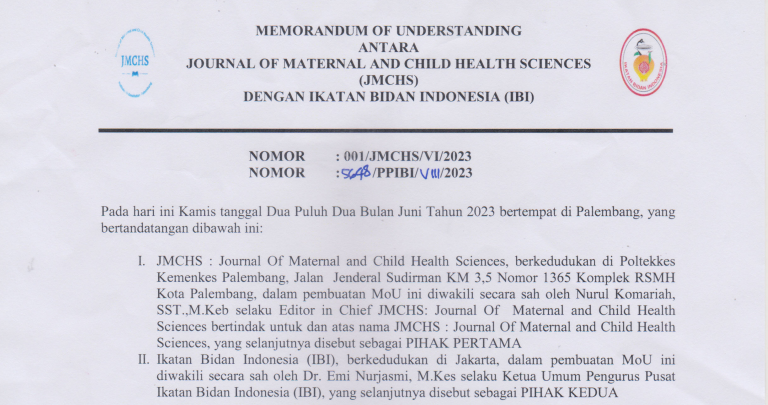The Effectiveness of Glucose and Honey Solution on the Duration of Second Stage of Labor in Primigravida
Abstract
Background: According to WHO (2018) 8% of maternal deaths are caused by prolonged labor. The long duration of the second stage of labor is one of the factors that cause prolonged labor. For this reason, oral intake is recommended to meet the needs of the mother during labor. Giving glucose and honey as an oral alternative during labor was chosen because the time needed to become energy is relatively fast so that it can be given to mothers during labor and can provide oral intake for mothers in labor to accelerate the second stage and prevent prolonged labor.
Purpose: To determine the effectiveness of giving glucose and honey solution on the duration of the second stage of labor in Midwife’s Independent Practice
Methods: This research is a quantitative research using a quasi-experimental design research method. 30 respondents based on inclusion criteria were divided into two groups and intervened with a solution of glucose and honey. The duration of the second stage of labor was observed for each respondent and analyzed through the unpaired T-Test. Results: The results of the unpaired T statistic test obtained a p-value of 0.021 (p-value <0.05). There were differences in the duration of the second stage of labor in respondents who were given honey and glucose solution. The average duration of the second stage of labor in the treatment group that was given honey was 5.14 minutes shorter than the group given the glucose solution. Conclusion: There is a difference in the duration of the second stage of primigravida labor in pregnant women who are given honey and glucose solution. Giving honey is more effective in accelerating the duration of the second stage of labor in primigravida at PMB Palembang in 2021
Copyright (c) 2021 JMCHS : Journal of Maternal and Child Health Sciences

This work is licensed under a Creative Commons Attribution-ShareAlike 4.0 International License.
Authors who publish with this journal agree to the following terms:
- Authors retain copyright and grant the journal right of first publication with the work simultaneously licensed under a Creative Commons Attribution License that allows others to share the work with an acknowledgement of the work's authorship and initial publication in this journal.
- Authors are able to enter into separate, additional contractual arrangements for the non-exclusive distribution of the journal's published version of the work (e.g., post it to an institutional repository or publish it in a book), with an acknowledgement of its initial publication in this journal.
- Authors are permitted and encouraged to post their work online (e.g., in institutional repositories or on their website) prior to and during the submission process, as it can lead to productive exchanges, as well as earlier and greater citation of published work












